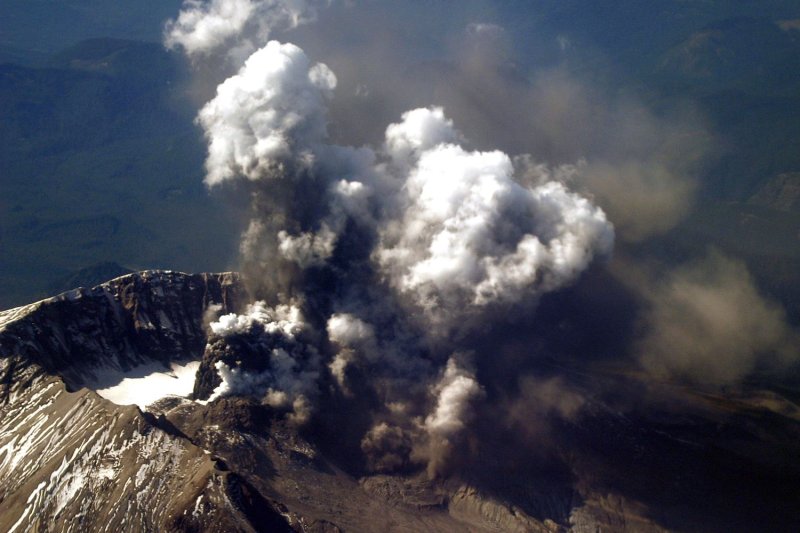New research suggests the formation and breakup of continents through time has dictated Earth's carbon cycle. Photo by UPI/Scott Taylor/U.S. Navy |
License Photo
July 21 (UPI) -- New research suggests continental drift dictates volcanic carbon emissions.
The link between dramatic tectonic shifts -- the formation and breakup of the supercontinents -- and Earth's carbon cycle also has a strong influence on the trajectory of evolution, scientists argue.
When researchers from the University of Cambridge analyzed the chemical signatures of carbon and helium emanating from some 80 volcano's scatters about the globe, they found most volcanic emissions are recycled from rather shallow sources.
"This is an essential piece of geological carbon cycle puzzle," Cambridge researcher Marie Edmonds said in a news release.
However, scientists believe this was unlikely to be the case in the distant future.
The recent analysis revealed island arc volcanoes tend to emit less carbon overall, but more carbon from sources deep in the mantle, while continental volcanoes emit more carbon, the majority from shallow sources.
As continets formed and broke up over time, researchers hypothesize, the balance of power between continental and island arc volcanoes shifted back and forth, transforming Earth's carbon cycle. Island arc volcanoes dominated during the period of continental formation. But when continents split apart, continental volcanoes come into power.
These shifts are reflected in the isotopes of geologic strata. Until now, scientists thought changes in atmospheric oxygen were the sole factor influencing isotopic carbon ratios in limestone. The latest findings -- detailed in the journal Science -- suggest shifts in volcanic regimes can also alter limestone's chemical signature.
The revelation may force scientists to reconsider the evolutionary timeline, as paleontologists use isotopic carbon signatures in limestone as a proxy for the planet's habitability.
"This makes us fundamentally re-evaluate the evolution of the carbon cycle," said Edmonds. "Our results suggest that the limestone record must be completely reinterpreted if the volcanic carbon coming to the surface can change its carbon isotope composition."















